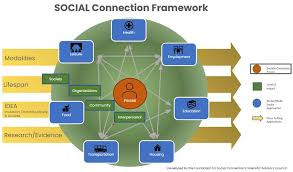
257. The Disconnected Self
Module 12. Innerworth – Mind over markets
The winning trader looks at a trade objectively. One’s self-esteem and identity are not on the line. All that is on the line is mere money, an abstract, meaningless stake. A common saying to heed is, “Don’t let your net worth define your self-worth.” To the extent that one can trade with a Spock-like, logical and unemotional mindset, one can trade effortlessly and profitably, most of the time. But this is easier said than done. Although people’s performance is best when the outcome truly does not matter, it is difficult to set up such circumstances. Many times, outcomes do indeed matter and it is hard to emotionally disconnect trading outcomes from one’s sense of self.
In several research studies, it has been demonstrated that performance is hampered when outcomes are tied to one’s sense of self, or one’s ability to satisfy basic psychological or emotional needs. For example, if one’s economic survival depends on achieving a fixed sales quota that is hard to obtain, achieving the goal is more difficult. It’s like when a college student crams for an exam all night. It is much harder to do, and one is likely to choke under the pressure. Similarly, when the outcome of a trade impacts one’s sense of security or identity, the pressure is on, and it may be hard to perform under the pressure.
Trying to relieve the pressure will improve one’s ability to perform. The ideal situation, for example, is a multi-millionaire who can afford to make several losing trades and lose $5,000 a day with relatively few scars. Most of us, however, are not that fortunate. Perhaps the next best circumstance is the trader who has a relatively small trading account and uses the profits from it to pay monthly leisure expenses, such as gourmet dinners or a few extra luxury items. If the losses really don’t matter, the pressure will be lessened. But most traders don’t find themselves in such circumstances.
Many traders are interested in trading for a living, and that’s when trading becomes difficult, whether it is the lone trader trying to support a family or the professional hedge fund manager trading clients’ money. In these cases, the outcomes of trades do matter. If too much money is lost, one does not survive economically. The psychological impact is also substantial. One’s identify is usually closely linked to being a good provider for one’s family, or as a successful member of society. When one loses a lot of money, one’s sense of self and self-esteem may be diminished. In the back on one’s mind, one always knows that should losses mount too drastically, one can actually be harmed financially and psychologically.
How can one disconnect one’s sense of self from one’s trading outcomes? Preventative measures can be taken. First, one can manage risk. If you know that it is unlikely that the outcomes of a series of losing trades can hurt you, you’ll feel more at ease and be able to remain calm and objective. Second, it is vital to have a sense of self that is defined in many different ways. For example, don’t just define yourself as “a trader.” View yourself from multiple perspectives: a good friend, a loving spouse, a caring parent, and an upstanding citizen. Multiple views of oneself will lessen the importance of maintaining the view of oneself as “the winning trader,” and will ease some of the psychological pressure. The more you can disconnect your trading performance from your sense of self, the more you can trade logically, effortlessly, and profitably.









Average Rating